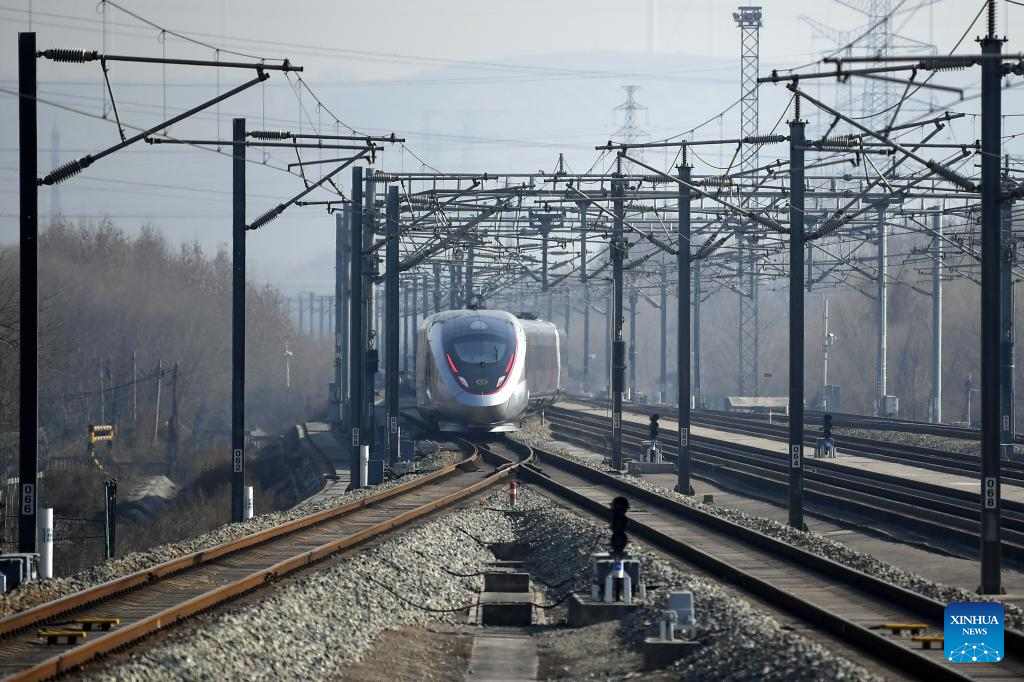
XI'AN/WUHAN - New high-speed rail services linking Hong Kong with Xi'an and Wuhan, two major cities in China, were officially launched on Sunday, significantly enhancing connectivity between the Hong Kong Special Administrative Region and the Chinese mainland.
A train departed from Xi'an, the capital of Northwest China's Shaanxi province, at 11:04 am, and another left Wuhan, the capital of central China's Hubei province, at around 4 pm, with both departure stations hosting performances and other celebratory activities.
Along the route linking Hong Kong with Xi'an, which also stops in Wuhan, a single trip in either direction takes under 11 hours, with other stations located in the provinces of Shaanxi, Henan, Hubei, Hunan and Guangdong.

Trains departing from Wuhan take no more than five hours to reach Hong Kong, stopping in the Hunan and Guangdong provinces. Return trains on the route are scheduled to leave Hong Kong at 7:19 am the next day.
"To ensure top-notch services, we've trained our attendants to master necessary working Cantonese and English," said Luo Xin, deputy head of the Xi'an station under China Railway Xi'an Group Co Ltd.
The direct train service from Xi'an -- home to the world-famous Terracotta Warriors -- to Hong Kong will make travel between the two cities more convenient, and will also boost cooperation and exchanges in the fields of the economy, trade, talent and culture, the group said.
ALSO READ: China aims to have a 180,000-kilometer railway network by 2030

According to China Railway Wuhan Group Co Ltd, the opening of the two new routes means that four train services now operate between Hong Kong and Wuhan, which has a population of more than 13 million, bringing greater convenience to passengers traveling for short-term vacations, business, or visits.
Hong Kong entered its high-speed rail era in 2018, when the Hong Kong section of the Guangzhou-Shenzhen-Hong Kong Express Rail Link opened.
ALSO READ: China debuts prototype of fastest high-speed train in the world
China aims to expand the length of its operational high-speed rail tracks to about 60,000 kilometers by 2030, up from 48,000 kilometers at the end of 2024, data from the country's railway operator shows.


